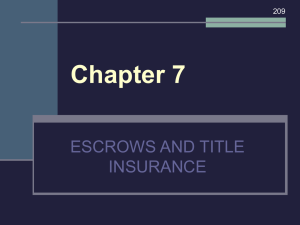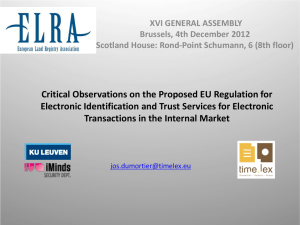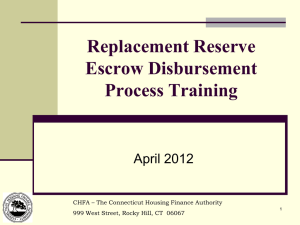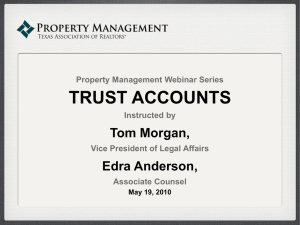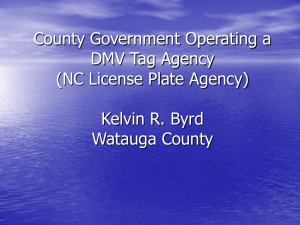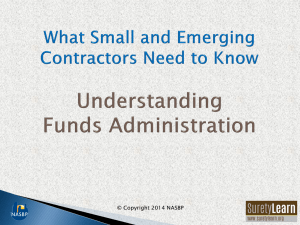Escrow with a civil law notary in the Netherlands What is
advertisement
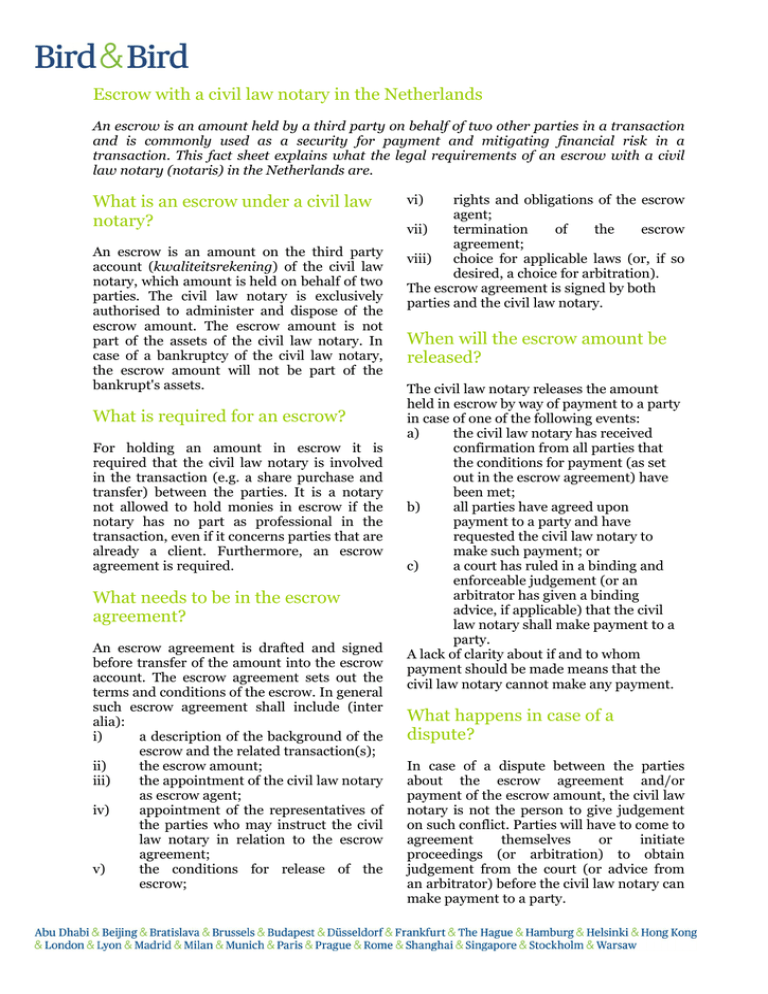
Escrow with a civil law notary in the Netherlands An escrow is an amount held by a third party on behalf of two other parties in a transaction and is commonly used as a security for payment and mitigating financial risk in a transaction. This fact sheet explains what the legal requirements of an escrow with a civil law notary (notaris) in the Netherlands are. What is an escrow under a civil law notary? An escrow is an amount on the third party account (kwaliteitsrekening) of the civil law notary, which amount is held on behalf of two parties. The civil law notary is exclusively authorised to administer and dispose of the escrow amount. The escrow amount is not part of the assets of the civil law notary. In case of a bankruptcy of the civil law notary, the escrow amount will not be part of the bankrupt's assets. What is required for an escrow? For holding an amount in escrow it is required that the civil law notary is involved in the transaction (e.g. a share purchase and transfer) between the parties. It is a notary not allowed to hold monies in escrow if the notary has no part as professional in the transaction, even if it concerns parties that are already a client. Furthermore, an escrow agreement is required. What needs to be in the escrow agreement? An escrow agreement is drafted and signed before transfer of the amount into the escrow account. The escrow agreement sets out the terms and conditions of the escrow. In general such escrow agreement shall include (inter alia): i) a description of the background of the escrow and the related transaction(s); ii) the escrow amount; iii) the appointment of the civil law notary as escrow agent; iv) appointment of the representatives of the parties who may instruct the civil law notary in relation to the escrow agreement; v) the conditions for release of the escrow; vi) rights and obligations of the escrow agent; vii) termination of the escrow agreement; viii) choice for applicable laws (or, if so desired, a choice for arbitration). The escrow agreement is signed by both parties and the civil law notary. When will the escrow amount be released? The civil law notary releases the amount held in escrow by way of payment to a party in case of one of the following events: a) the civil law notary has received confirmation from all parties that the conditions for payment (as set out in the escrow agreement) have been met; b) all parties have agreed upon payment to a party and have requested the civil law notary to make such payment; or c) a court has ruled in a binding and enforceable judgement (or an arbitrator has given a binding advice, if applicable) that the civil law notary shall make payment to a party. A lack of clarity about if and to whom payment should be made means that the civil law notary cannot make any payment. What happens in case of a dispute? In case of a dispute between the parties about the escrow agreement and/or payment of the escrow amount, the civil law notary is not the person to give judgement on such conflict. Parties will have to come to agreement themselves or initiate proceedings (or arbitration) to obtain judgement from the court (or advice from an arbitrator) before the civil law notary can make payment to a party. What are further consequences of an escrow with a civil law notary? An escrow with a civil law notary in the Netherlands has certain consequences which relate to the involvement of the civil law notary. A Dutch civil law notary is subject to Professional Rules of Conduct which means he has a duty of care towards all parties involved. Such duty of care of civil law notaries outweighs the duty of care of, for instance, banks. A Dutch civil law notary is also subject to disciplinary rules. In his acts, a civil law notary will always take the duty of care and disciplinary rules into consideration carefully. In case of a dispute, a civil law notary may not be able to act at all until there is agreement between parties or a court judgement (or arbitrator binding advice). Such can have a major impact on the transaction. What are the costs of an escrow? The required work for an escrow with a civil law notary consists of drafting of an escrow agreement. The cost for such agreement depends on the specific situation at hand. Further required actions under or in connection with the escrow are charged based upon hourly rates and the time spent. What are the alternatives? There are alternatives to an escrow with a civil law notary available. For instance banks (e.g. ABN Amro, BNP Paribas) and trust offices have escrow services and can act as escrow agent. We are happy to liaise with such escrow agent if desired. For more contact: information, please Caifa Chu (caifa.chu@twobirds.com) or René Rieter (rene.rieter@twobirds.com)

